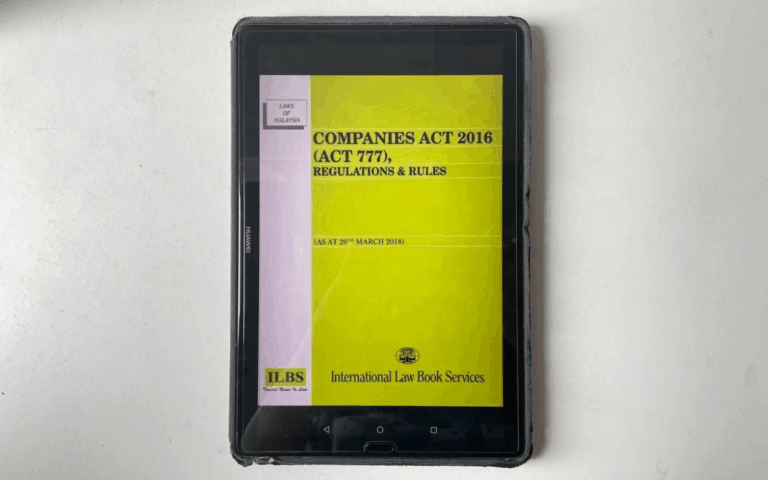5 situations in which your company should adopt a constitution

A constitution is a contract between the company, its directors, and its shareholders that set the company in the right direction for operation and growth. It lays out the company's main business objectives, responsibilities of the directors and shareholders, and how the company is governed in terms of shares allotment, dividend payments, the appointment of directors, etc. Unless stated otherwise, the operation and governance of the company must follow rules and regulations as stated in the constitution. These are 5 situations when it is advisable to adopt a constitution for your company.
When there is an even number of directors or/and shareholders
Many decisions in a board or shareholder meeting are made through the casting of majority votes. If there is an even number of voters, a 'deadlock' situation might happen when exactly half of the directors or shareholders have voted for a different decision. This situation can be avoided when some voting rules are laid out. For example:- The chairperson of the meeting will have a casting vote if there is a tie in voting.
- The representative of a shareholder cannot be the chairperson of any meeting.
- All directors shall be present in order to hold the board meeting.
When you want to protect the rights of shareholders beyond what's stated in the Act
The liability and rights of shareholders are stated under Part III, Division II, Subdivision I of the Companies Act 2016 where the shareholders are liable based on the amount of paid-up capital they contributed and they can hold management reviews from time to time to make recommendations to the board of directors. Additional rules can be included in the constitution to protect the rights of shareholders. For example:- A shareholder who is unable to attend the meeting physically as required may appoint a representative to vote on behalf.
- A written resolution is considered to be rejected if it is not passed by majority votes within 14 days from the date of circulation.
- No voting should be done if less than 80% of shareholders attend the shareholder meetings.
When it is a joint venture between 2 or more companies
A joint venture consists of 2 or more companies who act as corporate shareholders. As corporate shareholders are not individuals, additional rules can be laid out in the constitution to protect the rights of the companies. For example:- The number of directors should be appointed from each of the corporate shareholders in the joint venture.
- If one of the companies is struck off or wound up, the shares of its corporate shareholder will be redeemed by the joint venture.
- The joint venture can only carry out businesses as stated in the constitution.
When your company plans to raise funds from investors
Without a constitution, your company can only issue ordinary shares which give shareholders ownership in the company as stated in Part III, Division I, Subdivision I of the Companies Act 2016. Ordinary shareholders have the right to share profits, vote in shareholder meetings, and appoint or dismiss directors. If your company wants to raise funds through the issuance of preference shares where the shareholders usually have no voting rights, a constitution is needed to outline how the shares work. For example:- 40% of the total shares shall be preference shares.
- Preference shares are redeemable or non-redeemable by the company.
- How frequent and how much dividends should be distributed to shareholders.
- Shareholders with preference shares have voting rights just like those with ordinary shares.
When you want to regulate how the Board works
Default proceedings of the board are stated under the Third Schedule (Section 212) of the Companies Act 2016; this includes voting rights of directors, how a board resolution can be passed, the appointment of committees and managing directors, etc. As the proceedings listed are general, you can establish more specific rules on how the Board works through a constitution based on the needs of your company. For examples:- A board resolution can be passed with majority votes from directors.
- A specific director is appointed permanently as the chairperson of board meetings unless he is removed from the board.

Since the key updates of the Companies Act 2016 came into effect, it is not mandatory for a Sdn Bhd company to adopt a constitution as the Act has set out rights, powers, duties, and obligations of a company's directors and shareholders which can be used even in the absence of a constitution. Even so, since every company has different needs in terms of governance, it is advisable to adopt a constitution to ensure that the company has greater flexibility when it comes to making sure all directors and shareholders are on the same page.
Table of Contents
We're the most convenient online platform for starting & managing a Sdn Bhd
- Incorporation of Sdn Bhd
- Company secretary
- Accounting & Bookkeeping
- Audit & Taxation
- HR & Payroll

Related Articles

The 8 Types of Business Entities in Malaysia: Which one should you choose?
Complete guide to choosing the right business entity in Malaysia. Compare Sdn Bhd, sole proprietorship, partnership, LLP & more. Includes registration costs, tax implications & requirements for 2026.
Read more →

